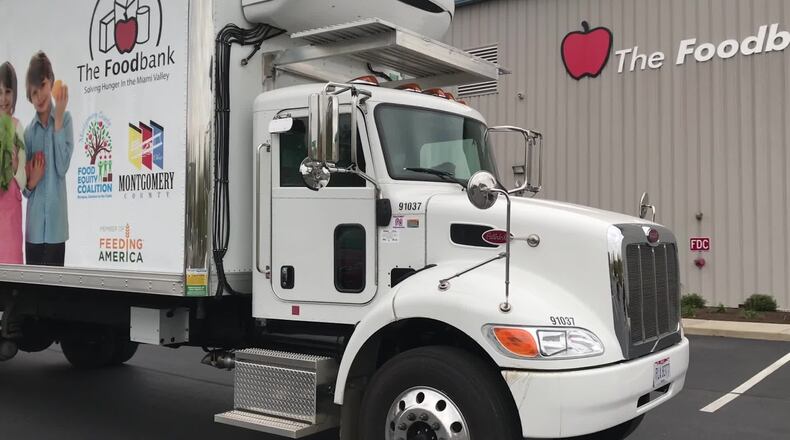“Obviously COVID-19 has been an extremely difficult time for all of us. It’s even more difficult for those that are less fortunate and more vulnerable," said Montgomery County Health Commission Jeff Cooper. “It’s been especially trying on our food system and it’s creating new barriers in accessing fresh healthy foods in our community."
According to the county’s community health assessment, 21.6% of children in the county face food insecurity. To combat the issue the Foodbank began their childhood hunger program to identify ways to support the entire family as part of the coalition’s food insecurity branch.
“The Foodbank has test piloted an in-school food pantry to assess return on investment and effectiveness of the program. Unfortunately, the program operated between January and March but was shut down due to COVID-19,” said Montgomery County food systems project manager Haley Carretta.
The nonprofit also partnered with one Dayton public school to provide good-to-go weekend backpacks while the school is closed. The backpack has enough food to last the entire family the weekend.
“Prior to the pandemic, 17% of our community was food insecure, 70,000-plus residents participated in SNAP, and too many of our neighborhoods were considered food deserts, and the sobering fact is that unfortunately we know those numbers have increased as a result of this pandemic,” Cooper said.
In addition to the food pantry programs, the coalition has also been working on the service gap map which is expected to be complete later this month.
“We want to identify areas where access to emergency food assistance is limited, identify areas where there is no public transportation available to access food assistance, and identify existing or new partner agencies to service gap areas temporarily setting up mobile farmers markets when needed," Carretta said.
The strong communities branch worked to expand those initiatives and outreach efforts to engage community residents. “This branch is about how do we make sure that those with lived experiences are a part of the process in making these decisions and that their voices are heard,” she said.
The coalition also discussed updates for their sustainable ecosystems and vibrant farms branches on climate change and creating resources for growers and agriculture.
The Ohio State University extension offices offered virtual agricultural trainings for the first time. “This provides our growers with those basic steps to how we make sure we are providing good and safe food for our community,” Carretta said.
About the Author

